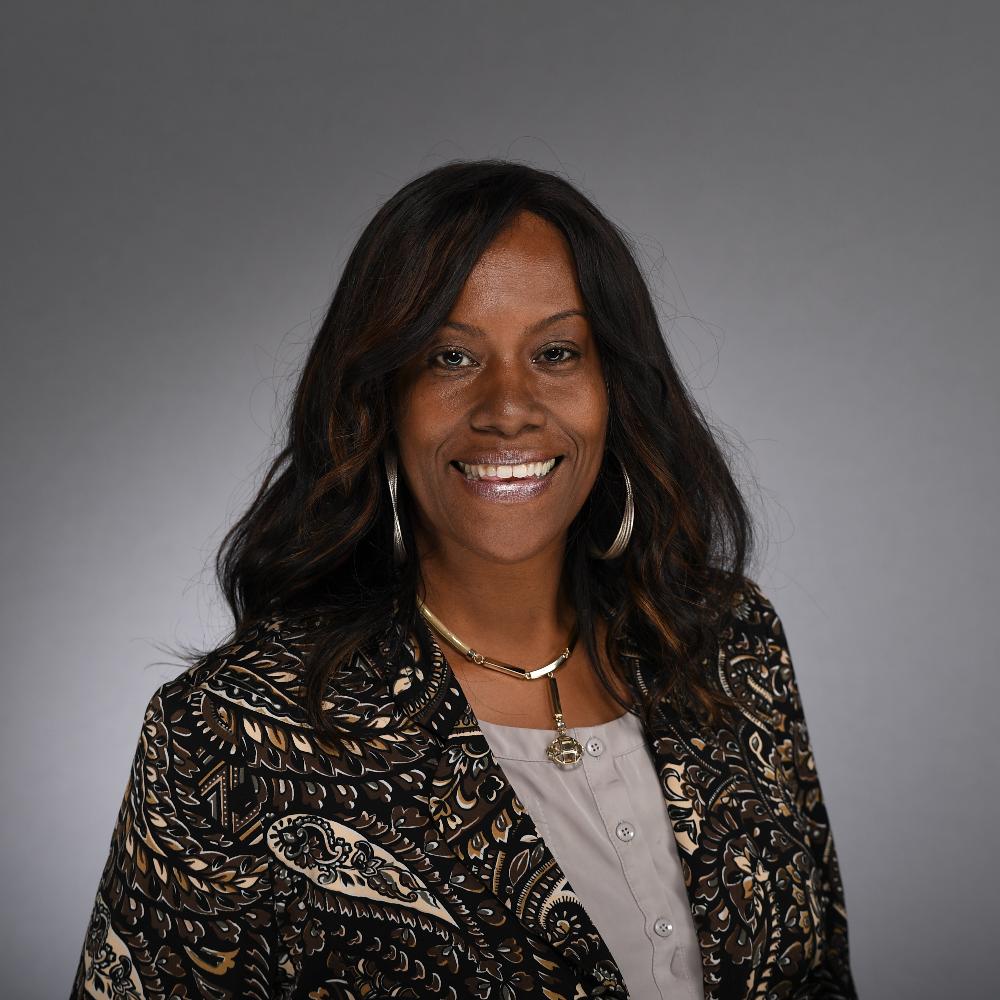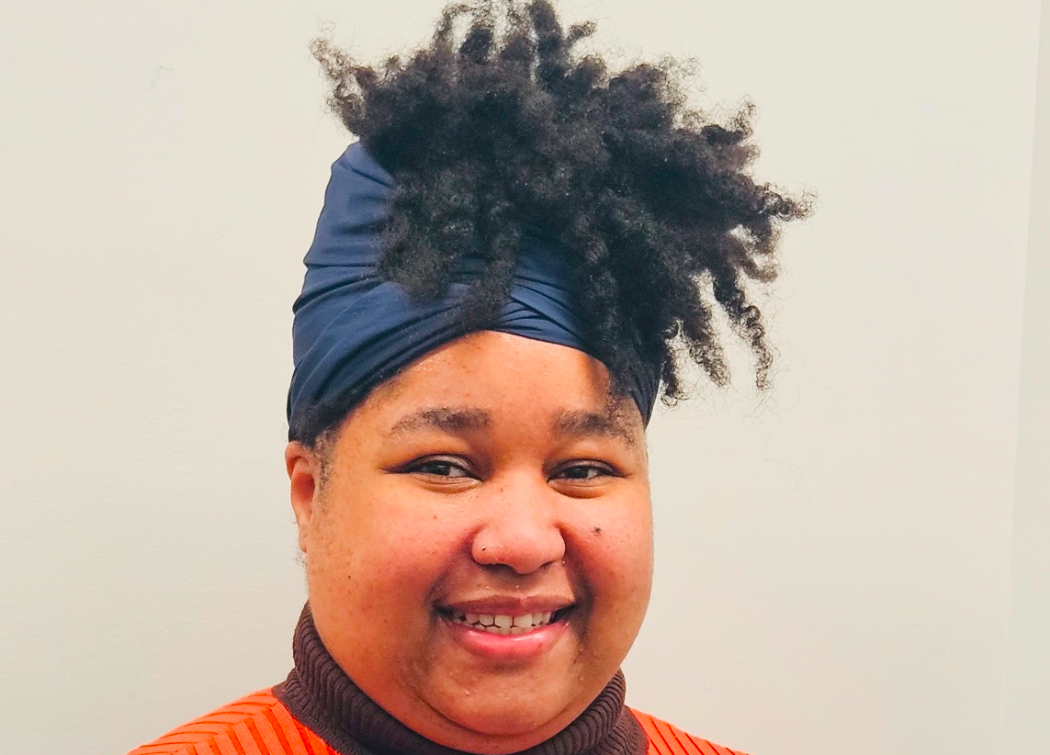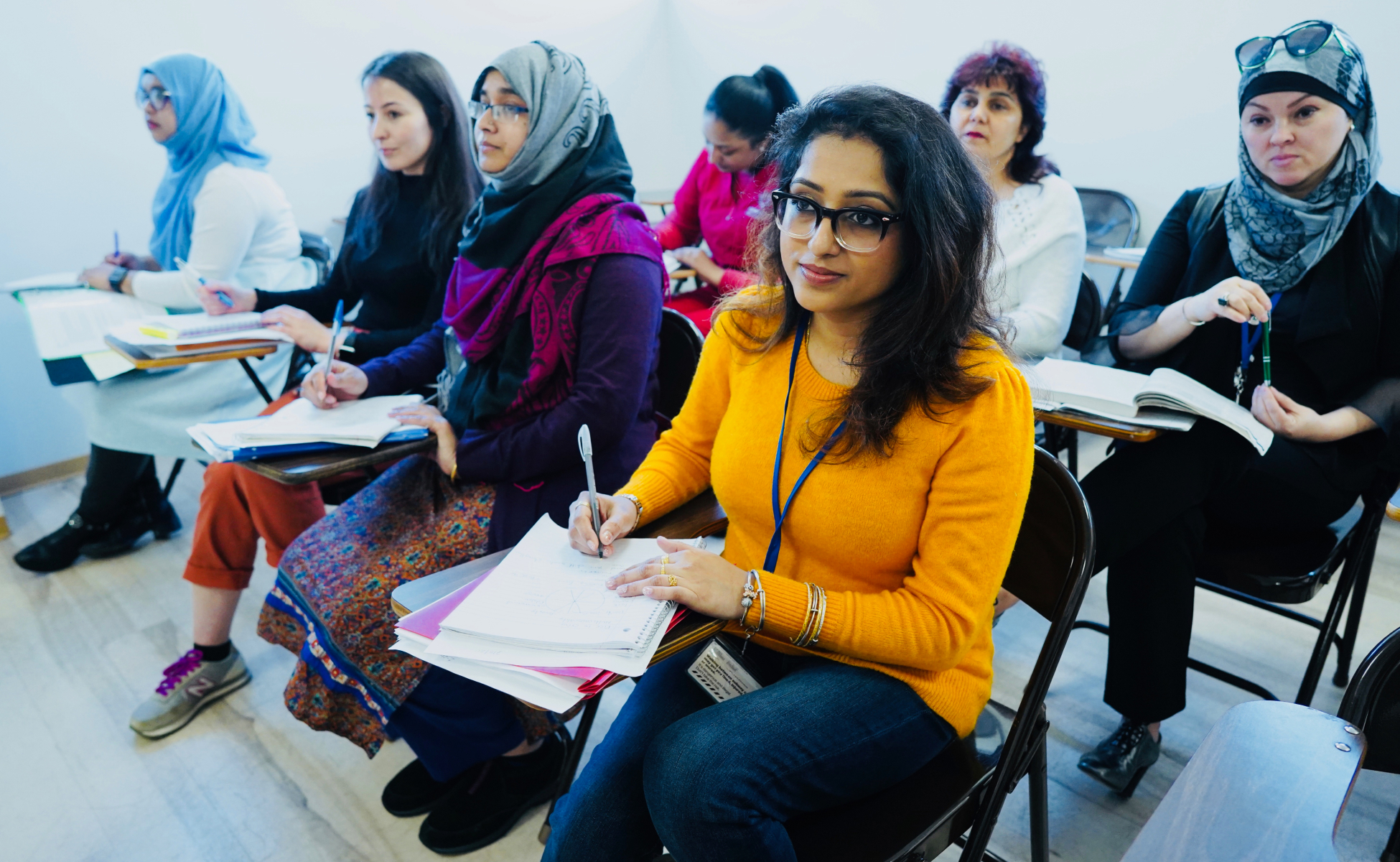Choose either a two-year associate's degree or a four-year bachelor's degree. Both prepare you for meaningful work in social services, healthcare settings, and nonprofits.
“Human services includes concepts in psychology, social work, and community organization, but is more general than either psychology or social work. This major prepares you to do community work on various levels in government jobs and private agencies.”
- Prof. Gerald David, chair, human services department
Career Paths That Make a Difference
As a human services major, you'll learn to:
- Support families through tough times.
- Resolve conflicts and handle complex cases.
- Link people with helpful resources.
- Build strong interpersonal skills.
These skills are in demand for organizations that form the backbone of support for basic needs such as food assistance, housing, employment training, youth services, and counseling for substance use and other mental health disorders.
NYSCAS’ program gives you practical experience, so you’ll be prepared for a job right after graduation. You'll also have room to grow. Many of our graduates rise through the ranks to lead their own agencies, while others go on to advanced degrees in social work, counseling, and related fields.
Learn From Caring Faculty Eager to Share Their Expertise
At NYSCAS, our small classes mean you get personal attention. And your professors are eager to share their professional insights to help you understand all the field has to offer.
You’ll learn from human services experts in:
- Social welfare programs
- Substance abuse and mental health counseling
- Child and family services
- Community advocacy
- Nonprofit leadership
- Clinical psychology
They're invested in your success — happy to share their expertise, mentor you, and connect you to their networks to help launch your career.

“ Our professors are passionate people who bring real-world experience, problems, and contacts to the classroom. You’ll learn from instructors who understand your career goals because they’ve been there themselves. ”
- Prof. Cynthia Swangin, deputy chair, human services department
Student Spotlight: Jashauna Helps Young People See What's Possible
Jashauna grew up in Harlem's public housing system. While finishing her degree, she works as assistant director of Touro's Liberty Partnerships Program, mentoring middle and high school students.
As a mother of three who became a parent at 18, she now sees her personal experiences as professional strengths for working with youth. "My ultimate goal is to become a therapist who empowers young adults to overcome obstacles," she says.
“ Knowing that I've played a role in helping others navigate life's challenges and succeed is deeply fulfilling. It's not just about academics or career paths. It's about helping them see a future full of limitless possibilities. ”
- Jashauna Evans, NYSCAS human services major

What You'll Learn (and When You'll Learn It)
Whether you choose the two-year associate's degree or the four-year bachelor's program, your education follows two main phases:
Phase 1: Building your foundation
- Human services concepts and systems
- Human development
- Communication and interviewing skills
- Ethics in human services
Phase 2: Preparing for your career
- Case management techniques
- Group work and leadership skills
- Specialized coursework in your chosen area
- Field internship in a community setting
- Professional certifications
If you choose the associate's degree, you'll complete both phases over two years. After that, you can either start working or continue into the bachelor's program.
If you pursue the bachelor's degree, you'll have more time to choose a concentration and build deeper expertise.
Specialized Areas of Study
Bachelor's program concentrations: In the four-year program, you'll choose from one of three areas focused on serving specific populations:
- Adult and family services
- Child and youth services
- Honors: Social Work
Professional seminars & certifications: These short trainings give you certifications that many jobs require, saving you time and money after graduation. Boost your resume with valuable credentials in:
- Domestic violence awareness
- Child abuse reporting
- Substance use counseling
- Counseling skills and techniques
- Health & wellness
Fieldwork for Hands-on Learning
The centerpiece of the human services major is a fieldwork project, where you get direct experience at an agency in your concentration area. Your path might include working in a:
- Mental health clinic
- School or community center
- Social service agency
- Shelter or housing program
- Substance use treatment center
- Community nonprofit
If you’re like many human services students, you’ll get a job offer directly from your internship — launching your career before you even graduate.
“The internships are very diverse. Students spend 112 hours in an agency where they're gaining skills and knowledge, practicing in the field. They're in churches, school systems, and they're actually doing the work.”
- Prof. Cynthia Swangin, deputy chair, human services department
Course Spotlight: Group Work Techniques
This hands-on course builds leadership skills through practical exercises. For half of each class, you'll facilitate real conversations.
When you take this class, you'll gain the ability to:
- Effectively lead group discussions.
- Use active listening techniques.
- Give helpful feedback.
- Manage group dynamics.
"In any job, you'll be in meetings," Prof. Swangin says. "This course gives you tools to listen well, lead talks, and offer feedback." These are valuable skills for any career that involves working with people.
Student Spotlight: Laesha Finds a Wealth of Support on Her Path to Social Work
After 20 years working at a rehabilitation center, Laesha knew she wanted to reach more people than she could as a substance abuse counselor. In NYSCAS’ human services department, she found professors who taught her valuable skills and supported her through the challenges of returning to school while balancing work and home life.
During COVID, she also had to adjust to remote learning while caring for her two special needs children. These hurdles didn’t stop her from getting an internship through a tip from her faculty mentor, which led to a job offer while she was wrapping up her bachelor’s degree.
After relocating to Virginia to care for her grandmother —and struggling to find housing for her family — Laesha was still able to pursue her MSW online in Touro's Graduate School of Social Work. She’s grateful that her NYSCAS connections still offer guidance across the distance. "Even being miles away, the professors are still assisting me through this journey,” she says.
“For my adult learners, those who haven’t been in school for a while, don't count yourself out," she adds. "If you come in with a doubt mindset, you’ll psych yourself out of a great opportunity."
“I started out slow because of personal challenges, but with my professors’ support, I went from getting 18 out of 25 to perfect scores. I'm really rocking it now, and it's only because of the support I'm getting from the people at Touro.”
- Laesha Ramos, 2023 NYSCAS human services graduate, current MSW student at Touro University
Alumni Success Stories
When you major in human services, you're prepared to make a difference in variety of roles.
Here are just a few of the paths our alums have taken:
- Program director: One alumna was hired by the shelter where she interned. She has since been promoted to launch and lead a new center.
- Empathetic entrepreneur: A former student who experienced homelessness now runs his own physical training business. He works with men in shelters, offering both fitness training and emotional outlets for stress.
- Change agent: Another graduate works with CASES (Center for Alternative Sentencing and Employment Services) to develop programs for homeless populations. At the same time, he’s pursuing his master's degree at Fordham University.
Flexible Study Options
At NYSCAS, we understand that you may have work and family commitments. We offer human services classes in ways that work for you:
Choose how to learn:
- In-person or live Zoom classes
- Evening class options
Start when it works for you:
- Part-time or full-time study
- Fall, spring, or summer terms
Pathways at Touro: A Fast Track to an Advanced Degree
You don't need a graduate degree to work in human services. But if you're interested in continuing your education, Touro offers several accelerated options.
These programs offer a way to save time and money on advanced degrees. You’ll be able to:
- Take graduate courses as an undergraduate.
- Apply credits to both degrees.
- Complete your graduate degree quicker.
- Advance in your career sooner.
Social Work Honors Track
NYSCAS’ social work honors track includes graduate level social work courses that you can take as an undergraduate to get you on your way to an MSW at Touro's Graduate School of Social Work in less time.
Behavioral Science Pathway
Choose from three master’s degrees programs offered in collaboration with Touro’s School of Health Sciences:
- Clinical Mental Health Counseling (MS): Prepare for licensure as a professional counselor.
- Industrial-Organizational Psychology (MS): Apply principles of psychology to workplace settings.
- Behavior Analysis (MS): Develop skills in behavioral intervention.
Ready to Start Your Journey?
If you're passionate about making a difference in people’s lives, start your application today. You could be in class in just a few weeks!


